第539章 VOLUME VII(68)
'SIR: We desire to pass your lines under safe conduct, and to proceed to Washington to hold a conference with President Lincoln upon the subject of the existing war, and with a view of ascertaining upon what terms it may be terminated, in pursuance of the course indicated by him in his letter to Mr. Blair of January 18, 1865, of which we presume you have a copy; and if not, we wish to see you in person, if convenient, and to confer with you upon the subject.
'Very respectfully, yours, 'ALEXANDER H. STEPHENS.
'J. A. CAMPBELL.
'R. M. T. HUNTER.'
"I have sent directions to receive these gentlemen, and expect to have them at my quarters this evening, awaiting your instructions.
U.S. GRANT, Lieutenant-General, Commanding Armies United States."
This, it will be perceived, transferred General Ord's agency in the matter to General Grant. I resolved, however, to send Major Eckert forward with his message, and accordingly telegraphed General Grant as follows, to wit:
EXECUTIVE MANSION
WASHINGTON, January 13, 1865
(Sent at 1.30 P.M.)
LIEUTENANT-GENERAL GRANT, City Point, Va.:
A messenger is coming to you on the business contained in your despatch. Detain the gentlemen in comfortable quarters until he arrives, and then act upon the message he brings as far as applicable, it having been made up to pass through General Ord's hands, and when the gentlemen were supposed to be beyond our lines.
A. LINCOLN.
When Major Eckert departed, he bore with him a letter of the Secretary of War to General Grant, as follows, to wit:
WAR DEPARTMENT, WASHINGTON, D. C., January 30, 1865.
LIEUTENANT-GENERAL GRANT, Commanding, etc.
GENERAL:--The President desires that you will please procure for the bearer, Major Thomas T. Eckert, an interview with Messrs. Stephens, Hunter, and Campbell, and if on his return to you he requests it pass them through our lines to Fortress Monroe by such route and under such military precautions as you may deem prudent, giving them protection and comfortable quarters while there, and that you let none of this have any effect upon your movements or plans.
By order of the President:
EDWIN M. STANTON, Secretary of War.
Supposing the proper point to be then reached, I dispatched the Secretary of State with the following instructions, Major Eckert, however, going ahead of him:
EXECUTIVE MANSION, WASHINGTON, January 31, 1865.
HON. WILLIAM H. SEWARD, Secretary of State:
You will proceed to Fortress Monroe, Va., there to meet and informally confer with Messrs. Stephens, Hunter, and Campbell on the basis of my letter to F. P. Blair, Esq., of January 18, 1865, a copy of which you have.
You will make known to them that three things are indispensable, to Wit:
1. The restoration of the national authority throughout all the States.
2. No receding by the Executive of the United States on the slavery question from the position assumed thereon in the late annual message to Congress and in preceding documents.
3. No cessation of hostilities short of an end of the war and the disbanding of all forces hostile to the Government.
You will inform them that all propositions of theirs not inconsistent with the above will be considered and passed upon in a spirit of sincere liberality. You will hear all they may choose to say and report it to me.
You will not assume to definitely consummate anything.
Yours, etc., ABRAHAM LINCOLN.
On the day of its date the following telegram was sent to General Grant:
WAR DEPARTMENT, WASHINGTON, D. C., February 1,1865
(Sent at 9.30 A.M.)
LIEUTENANT-GENERAL GRANT, City Point, Va.:
Let nothing which is transpiring change, hinder, or delay your military movements or plans.
A. LINCOLN.
Afterwards the following despatch was received from General Grant:
OFFICE UNITED STATES MILITARY TELEGRAPH
WAR DEPARTMENT.
The following telegram received at Washington, 2.30 P.M., February 1, 1865, from City Point, Va., February 1, 12.30 PM., 1865:
"His EXCELLENCY A. LINCOLN, President United States:
Your despatch received. There will be no armistice in consequence of the presence of Mr. Stephens and others within our lines. The troops are kept in readiness to move at the shortest notice if occasion should justify it.
U.S. GRANT, Lieutenant-General."
To notify Major Eckert that the Secretary of State would be at Fortress Monroe, and to put them in communication, the following despatch was sent:
WAR DEPARTMENT, WASHINGTON, D. C., February 1, 1865.
MAJOR T. T. ECKERT, Care of General Grant, City Point, Va.:
Call at Fortress Monroe and put yourself under direction of Mr. S., whom you will find there.
A. LINCOLN.
On the morning of the 2d instant the following telegrams were received by me respectively from the Secretary of State and Major Eckert:
FORT MONROE, VA., February 1,1865. 11.30 PM.
THE PRESIDENT OF THE UNITED STATES:
Arrived at 10 this evening. Richmond party not here. I remain here.
WILLIAM H. SEWARD.
CITY POINT, VA., February 1, 1865. 10 P.M.
HIS EXCELLENCY A. LINCOLN, President of the United States:
I have the honor to report the delivery of your communication and my letter at 4.15 this afternoon, to which I received a reply at 6 P.M., but not satisfactory.
At 8 P.M. the following note, addressed to General Grant, was received:
CITY POINT, VA., February 1, 1865
"LIEUTENANT-GENERAL GRANT.
"SIR:-We desire to go to Washington City to confer informally with the President personally in reference to the matters mentioned in his letter to Mr. Blair of the 18th January ultimo, without any personal compromise on any question in the letter. We have the permission to do so from the authorities in Richmond.
Very respectfully yours, ALEX. H. STEPHENS
R. M. T. HUNTER.
J. A. CAMPBELL."
At 9.30 P.M. I notified them that they could not proceed further unless they complied with the terms expressed in my letter. The point of meeting designated in the above note would not, in my opinion, be insisted upon. Think Fort Monroe would be acceptable.